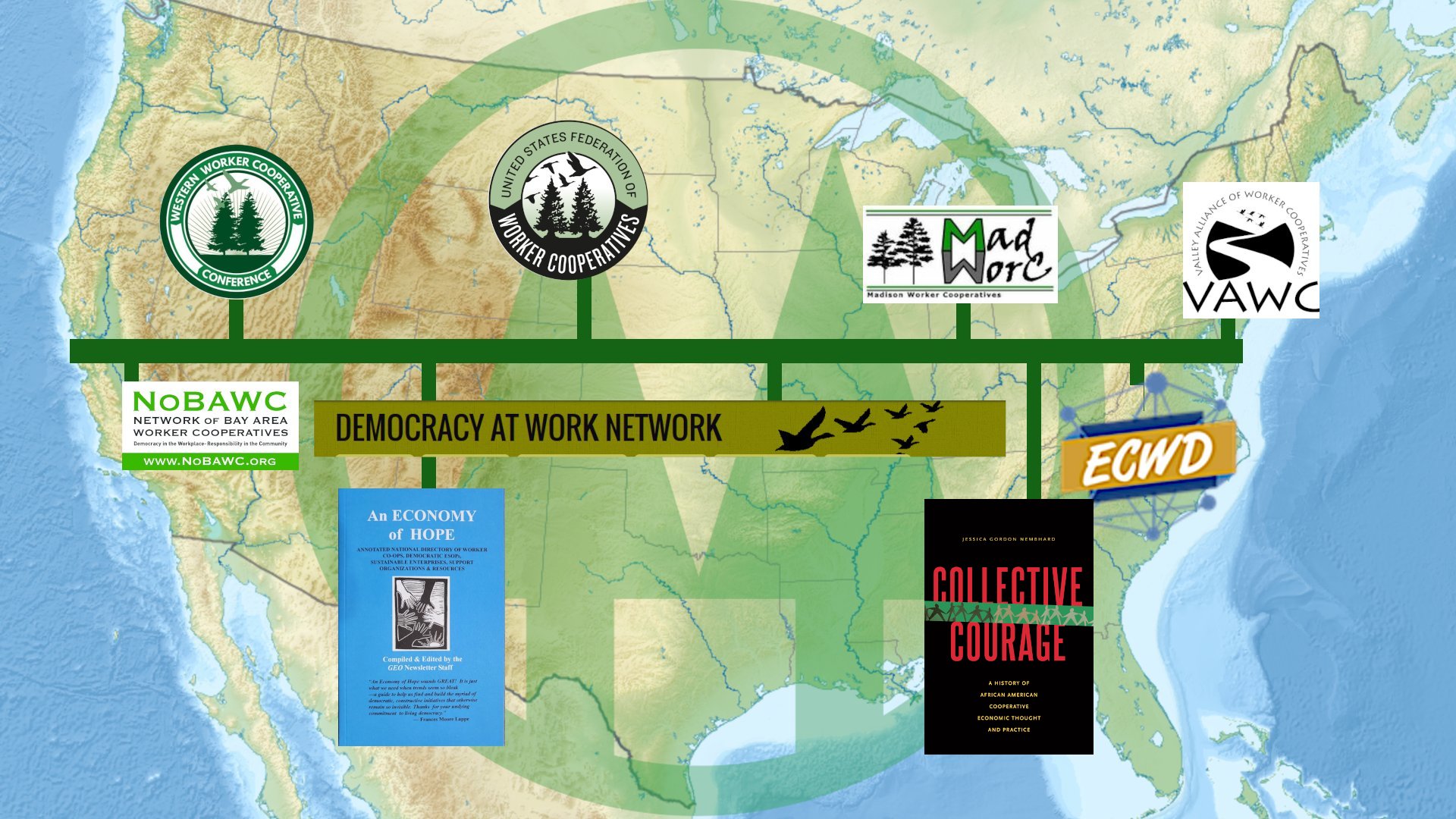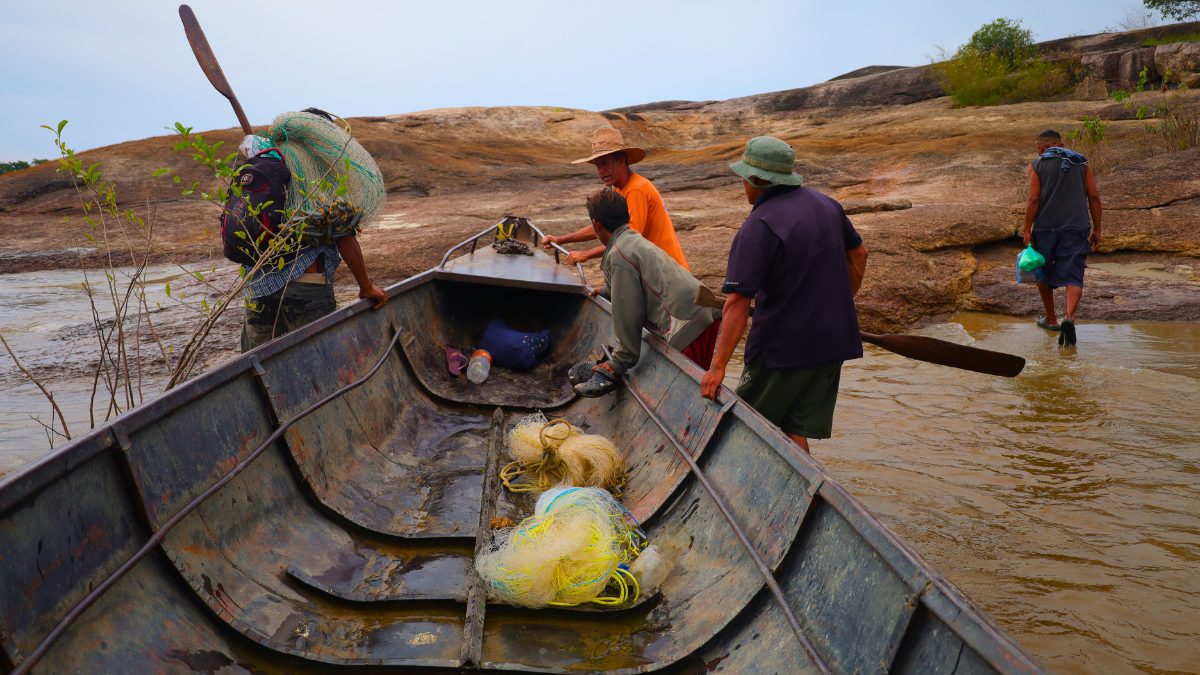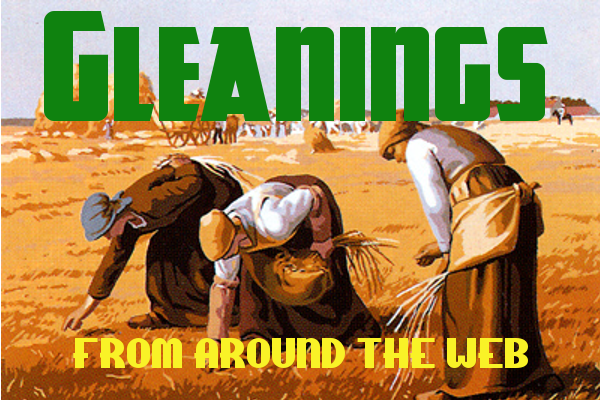This week, we have a special piece that we've been working on for quite awhile now - a timeline presentation of the US Worker Co-op Movement, covering over 20 years of history.
Then, Chris Gilbert and Cira Pascual Marquina interview members of the Ayacucho Commune in Venezuela about how the community members have come together to manage the local fisheries and promote regional food sovereignty.
A Timeline of the US Worker Co-op Movement
by GEO Collective
This presentation was put together by the GEO Collective with input from cooperators across the country. Thanks to everyone who contributed to filling in the historical record.
Fisherfolk and Their Cooperative Practices
The Ayacucho Commune
by Chris Gilbert & Cira Pascual Gilbert
In Venezuela’s Amazonas state, fishing has long been not just a trade but a whole way of life rooted in collaboration, knowledge sharing, and mutual aid. Now, under the US blockade, fishing has become an even more important source of food. At the same time, the cooperative way of working of traditional fisherpeople has proven useful in solving blockade-induced obstacles.
3 things to watch for in your co-op’s financial statements
Co-operatives First — If you’re a co-op member – and especially if you’re a board member – being able to read your co-op’s financial statements is an important part of your job. Effective members ensure the co-op is operating sustainably and meeting the needs of the membership, and understanding the co-op’s financial situation is central to that task. This doesn’t mean you have to be a bookkeeper or accountant. Understanding a few key terms and concepts will help you interpret financial statements like a pro and give you peace of mind that you know what’s going on with your co-op’s finances...
Highlights from AB 746 Worker Co-ops in Prison Testimony
Sustainable Economies Law Center (YouTube) — Here are some highlights from the Labor & Employment Committee hearing where our co-workers Hope Williams and Hasmik Geghamyan advocated for our cooperatives in prison legislation!...
The Staffing Co-op
AlliedUP Cooperative — A staffing cooperative like AlliedUP is a worker-owned organization that provides talent solutions to care networks, skilled nursing facilities, and local clinics while ensuring its members—the workers themselves—earn fair wages, compensated benefits, and opportunities for professional growth...
Native CDFIs Mobilize to Protect Economic Sovereignty
Nonprofit Quarterly — In early 2025, the Native community development financial institution (CDFI) movement faced a potential blow when the administration of President Donald Trump issued a sweeping executive order that sought to reassess—and potentially cut—federal funding to a wide range of community investment initiatives, including the CDFI Fund and its critical Native American CDFI Assistance (NACA) program...
Register for BIPOC Farmers and Intentional Communities Conference
Acorn Community (events.com) — Join us for the Roots and Resilience: BIPOC Farmers & Intentional Communities Conference, a transformative gathering designed to empower, connect, and inspire BIPOC farmers, land stewards, and intentional community builders. Over three dynamic days, we’ll explore sustainable farming practices, land access strategies, community development, and personal wellness—all within a supportive environment rooted in cultural resilience and collective growth...
Like what you find on GEO?
Make a Donation Today!
Your tax-deductible contribution ensures that GEO can continue to provide independent grassroots content about the cooperative and solidarity economy movements.
Got something to say?
Let us know. Send your comments, suggestions, rants and article submissions to editors@geo.coop.
Follow us on Social Media
Mastodon: social.coop/@GEO_Collective
BlueSky: @geocollective.bsky.social
FB: facebook.com/GEOCollective
Twitter: twitter.com/@GEO_Collective
Instagram: instagram.com/grassrootsecon
Our mailing address is:
Grassroots Economic Organizing
P.O. Box 115
Riverdale MD 20738-0115




